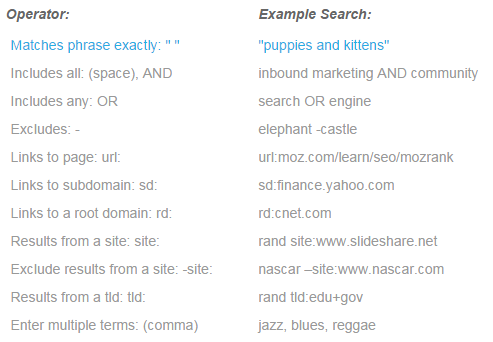Having great content is imperative to business success online. It answers questions that users are asking on search engines, positioning your business as the go-to place for answers. The goal is to become the authority in your industry. This not only helps with your brand awareness, but posting a variety of continuous, high-quality content on your site can help to increase traffic and rankings.
Show search engines what you want them to read
Developing authority through content shows the search engines what your site is all about, which is an absolute must. If you only have a few pages on your website and not a lot of quality content, or you have duplicate content, Google will view your site as being "thin" and hit you with their Panda algorithm.
Pro tip: Use Copyscape to check your pages for duplicate content.
Even if they don't ding your site, the lack of quality content gives Google a bad idea of what your business us all about, because they're looking for content on your pages to tell their crawlers what each is conveying. As powerful as Google may seem, it's not a company of mind readers who can magically determine what your business is doing. Neither is anyone who visits your site (although images do help humans at least - Google is working on that).
This graphic from SEOBook offers a great in-depth look at how Panda works and how it affects us. A lot has happened since the creation of this infographic, but it at least gives an idea of the basics about the Panda algorithm.
Besides giving your brand authority, trust, and recognition, you'll also gain an audience who may have never heard of or found you if it wasn't for your content.
Analyzing your competition for your content strategy
If you create more fresh and unique content than a competitor, and you're doing some form of marketing that content, chances are more people will be reading and sharing it(provided that is resourceful and awesome!). Google loves fresh and unique content, too, and will reward you by ranking you higher for creating it and sharing it socially, especially on Google+.
There are some online tools that you can use to monitor what your competitors are doing. For backlink monitoring, there are 3 pretty popular ones commonly used in the SEO industry.
- Majestic - You can use Majestic's API to setup a spreadsheet to keep track of the new backlinks that your competitors are acquiring.
- Ahrefs - Similar to Majestic in that you can export data and links to a spreadsheet for a better overview.
- Moz's Open Site Explorer - Might be the fastest at finding new backlinks, but best to use all three to make sure you don't miss any.
Note what content is getting picked up, and think of a way you can do it better. Or develop a new and unique idea relevant to that niche, and pitch to those sites where your competitors are getting mentioned.
Think of it in terms of trying to outrank your competition. If they're mentioned frequently on industry-relevant sites, and you also get mentioned on them as well as other sites, then Google and the search engines will recognize you as a more trusted source for the keywords surrounding the content you've created.
To get alerts of where your competitors are being mentioned on the internet, there are a few free and paid options that are widely used.
- Google alerts - It's free and can be set up to get alerts as it happens, once a day, a week, and if you want to see only the best alerts or everything.
- Moz's Fresh Web Explorer - Included in the monthly subscription to Moz you get Fresh Web Explorer, which gives some more advanced options in terms of using advanced search operators.
- Mention - If you are just monitoring your own brand mentions as part of your link building strategy, the free service will suffice. But if you want to monitor all the mentions of your competitors than you will have to bump up to a paid plan. What Mention does that the others don't is it offers the ability to track social mentions as well as web mentions.
Content is the beginning, promoting it is the next step
Content is how a user will find you on a search engine. If you have a thin site with little content, chances are less likely that you will be found in a web search. On the other hand, when you create resourceful content, you're not only going to get traffic, but eventually you will start to get mentions, shares, and links for it ... with a little promotion and outreach to get it started, of course.
There are some simple and cheap ways you can promote your content:
- Submit it to StumbleUpon.
- Use Facebook targeted ads. Just $5 here and there and boosting the post goes a long way.
- Promote it on all of your social networks and to submission sites like Reddit.
- When sharing on Twitter, promote it multiple times (among other content) because the life of a tweet is only about 18 minutes.
- Reach out to industry influencers and experts and ask for their input or for them to share it. If it adds value to their followers (and if you've been sharing their content) then they just might.
You really have to engage with bloggers, writers, editors, social influencers, and spend as much time (or more) promoting and doing outreach as you did writing the content.
There's some homework involved in determining who to reach out to, and something like Followerwonk is great in terms of finding experts and social influencers in different industries. If you don't have a Moz account you can use Tweepz, but it doesn't have all the filters and features that Followerwonk provides.
In conclusion...
So start with a content strategy that surrounds your keywords for your business. Create a calendar or schedule to keep up with creating all the different kinds of content, or hire a company who offers SEO services to put a custom plan together for your business and do it for you. Either way, content is the key to building authority for your brand!



